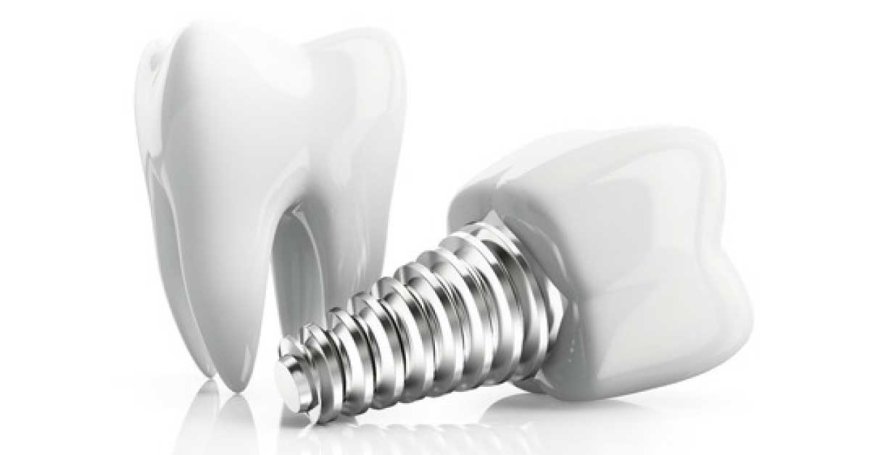What are the three major reasons for failure of implants?

Dental implants are widely regarded as one of the most effective and durable solutions for replacing missing or damaged teeth. They are made of titanium or ceramic materials and are surgically placed into the jawbone, where they act as a stable foundation for artificial teeth or crowns. However, like any medical procedure, dental implants are not immune to failure. While implant success rates are high, it is essential to understand the reasons why implants can fail. In this blog, we will explore the three major causes of dental implant failure and how to avoid them.
1. Poor Osseointegration
Osseointegration is the process by which the dental implant fuses with the bone in the jaw. For the implant to be successful, the bone must securely bond with the titanium post. However, there are times when this process does not occur effectively, leading to implant failure.
Several factors can cause poor osseointegration:
- Inadequate Bone Quality or Quantity: If the jawbone is not dense or strong enough, the implant may not be able to fuse properly. This is particularly common in patients who have experienced bone loss due to periodontal disease or other factors.
- Smoking: Smoking impairs blood flow to the gums and bone, making it harder for the implant to integrate with the bone.
- Infection: Any infection around the implant site can interfere with the healing process, preventing osseointegration.
For patients seeking dental implants in Islamabad, Pakistan, choosing a reputable clinic with advanced technology and experienced professionals can reduce the risk of osseointegration issues. The Dental Implants in Islamabad Pakistan are offered at clinics equipped with the latest techniques and surgical approaches to ensure the highest success rates.
2. Peri-implantitis (Implant Infection)
Peri-implantitis is an infection that occurs around the implant and is a common cause of implant failure. This condition is similar to gum disease but occurs at the site of the dental implant. It leads to inflammation of the gum and bone, which, if untreated, can cause bone loss and eventual implant failure.
The causes of peri-implantitis include:
- Poor Oral Hygiene: Just like natural teeth, dental implants need to be properly cared for. If the patient does not maintain good oral hygiene, plaque and bacteria can build up around the implant, leading to infection.
- Excessive Stress on the Implant: If the implant experiences excessive pressure from teeth grinding or misalignment, it can become loose, and infection can develop.
- Smoking: Smoking increases the risk of developing peri-implantitis by compromising blood circulation, which hampers healing and promotes bacterial growth.
Preventing peri-implantitis starts with regular dental check-ups and professional cleaning. Maintaining excellent oral hygiene and following the post-operative care instructions is critical to keeping the implant free from infection.
3. Mechanical Failures or Implant Loosening
Mechanical failure or loosening of the implant is another significant reason why implants fail. While dental implants are designed to be durable, they are not impervious to wear and tear. Over time, various factors can lead to mechanical complications:
- Excessive Bite Forces: If the implant is not properly aligned or if the patient has an unusually strong bite, the forces exerted on the implant can cause it to loosen or fail. This is especially true for individuals who suffer from bruxism (teeth grinding) or have misaligned teeth.
- Incorrect Implant Placement: If the implant is not placed in the correct position or angle, it can cause an uneven distribution of forces, leading to implant failure.
- Implant Fracture: Though rare, the implant itself can break or fracture due to material defects or excessive stress.
To avoid mechanical failures, it is crucial to have a thorough consultation and examination before undergoing implant surgery. The Cost of Dental Implants in Islamabad Pakistan varies depending on factors such as the complexity of the case and the materials used, but ensuring the proper placement and long-term care is an investment worth making.
How to Prevent Implant Failure?
While the three major causes of implant failure mentioned above can be concerning, there are several steps you can take to reduce the risk:
- Choose a Skilled Implant Specialist: Experience matters when it comes to dental implants. A qualified and experienced implant specialist can reduce the risk of improper placement and complications.
- Maintain Excellent Oral Hygiene: Brushing and flossing regularly, along with using an antibacterial mouthwash, can help prevent infection around the implant site.
- Avoid Smoking: Smoking significantly impairs the healing process and can lead to implant failure. If you smoke, consider quitting before and after the procedure.
- Follow Aftercare Instructions: Following your dentist's post-operative instructions is crucial for the success of your implant. This includes avoiding certain foods, taking prescribed medications, and attending follow-up appointments.
- Get Regular Check-Ups: Regular visits to your dentist will ensure that your implant is functioning properly and that any potential issues can be addressed before they become serious problems.
Conclusion
Dental implants are a life-changing solution for many people seeking to restore their smiles. However, understanding the potential causes of failure can help you take preventive measures to ensure the longevity and success of your implant. Whether you are considering dental implants in Islamabad Pakistan or looking to learn more about the cost of dental implants in Islamabad, it is essential to choose a reputable clinic and ensure that you follow all necessary steps for proper care.
By understanding the importance of osseointegration, preventing infection, and avoiding mechanical failure, you can maximize the success of your dental implants and enjoy a beautiful, functional smile for years to come.

 Sania
Sania